Good morning and welcome once again to our online viewers, and those who will be watching the video later. And a special hello to our viewers out of state and country!
May the Holy Spirit speak to your heart as you join us in worship and receive a message from God’s Word today. May you have peace.
May you grow more in loving God and loving others.
Today we pick up Part 2 of the message from July 12 entitled “Hands.”
God works through our hands. Today we’ll visit the second part of the story known as “the Good Samaritan” and see how our hands can bring hope and healing to others. You can be looking up Luke 10:30-37.
Last week, one of our elders, John Smith, brought us a powerful message about the importance and power of praising God.
Psalm 22:3 tells us God is “enthroned” in the praises of His people. When we are praising Him, together, He is in our midst!
John shared that praise and worship is being rediscovered right now in the face of the covid-19 pandemic. Praise is a powerful weapon, and in case you haven’t noticed, we are in a spiritual battle.
It is our hope you will grow in worshiping and praising God and be more ready more often to shout out some praise and activate the power of God!
John gave us powerful Biblical illustrations of how God worked through battle cries praising God which resulted in victory! What battles are you fighting that He can help you overcome?
Perhaps fear, worry and anxiety. Praise it away! Not only are you tapping into the resources of Heaven, but you’re putting your mind on Him, instead of the problems around you, which is good mental and spiritual health too.
Jesus told the lawyer questioning Him in Luke 10:25 that if he would focus on loving God and loving others, first and foremost, he would “live.”
The lawyer couldn’t leave it there. He asked Jesus who “the others,” or “neighbors,” were. This, then, led to Jesus’ teaching known as “the good Samaritan.”
Let’s pick up the story in Luke 10:30-37. [Read] [Pray]
The road going down from Jerusalem to Jericho would have been known to Jesus’ listeners as a dangerous place. Because of the climate of the area, warm, moist air comes across Israel from the Mediterranean sea until it reaches the elevated ridge on which Jerusalem is situated.
The range there squeezes out all the moisture, leaving the land to the east of Jerusalem dry and arid.
So anyone walking from Jerusalem to Jericho goes down in elevation and leaves a semi-dry area for a totally barren and parched one.
The trip between Jerusalem and Jericho would have been about 18 miles. In that distance, travelers would descend about half a mile. Most of those 18 miles would be in desert-like conditions.
The road between the two was a major thoroughfare for trading caravans, military personnel, and the pilgrims who visited Jerusalem several times a year. Because of the isolated terrain, people on this road were easy targets for bandits, who would find plenty of good hiding places and escape routes into the desert where they would not be pursued.
Someone robbed and beaten on this road would be especially vulnerable because there would be no food or water to find along the path and recover with. No shelter from the elements. The victim would be utterly exposed and isolated - desperate for help.
Anyone coming upon such a victim would not have been able to easily avoid them.
At some points, the road is so narrow, a passerby would have literally had to stop over their body.
So Jesus tells the story of a man who was attacked by robbers. They “Inflicted wounds on him,” the original language says, and stripped him. They must have wanted his clothes, among anything else he might have had on him. They left him half dead.
A priest just happened to be going down the same road. Oh thank goodness!
Help has arrived. Yes?
No. The priest, a man who knew that Deuteronomic law about loving God and loving people, as well as he knew his own name, went out of his way, all right.
He went out of his way to avoid the man and “passed by on the other side.”
Well then, thank goodness, an even more holy guy, a Levite, the one of the twelve tribes of Israel set aside to attend to the house and things and presence of God, he came along to the same place. He also saw the injured and half-dead man.
But, unfortunately, just like the priest, he “passed by on the other side.”
Things are not looking good for the probably now dying man lying injured on the road.
Then we see the word “But.” Contrast. Good!
In contrast to the earlier two people leaving him there, something different is coming.
Verse 33 says “But a Samaritan, as he traveled, came to where the man was.
And, unlike the other two, when he saw him he had compassion on him!
Just like our Heavenly Father. Just like Jesus. He “had compassion on him.”
The Bible is full of Scriptures telling us our God is a God of compassion.
He expects His children to be like Him in this way too.
Psalm 86:15 says, “But You Lord are a compassionate and gracious God...”
Jesus makes a point of identifying the one who showed compassion as a Samaritan. You see, the lawyer would have been a Jew, and a deep hatred existed between Jews and Samaritans. The Jews saw themselves as pure descendants of Abraham, while the Samaritans were a mixed race produced when Jews from the northern kingdom intermarried with other people after Israel’s exile.
Not only did the Samaritan, the one judged to be below the others, the one treated unfairly by others all the time, the one people were unfairly prejudiced against,
the Samaritan not only stopped when the other two did not, but he helped.
And he helped generously and sacrificially. Again, just like our Father. Just like Jesus.
He gave of his resources and he gave of his time.
He took the time to bandage his wounds. That couldn’t have been fun. It was most likely messy, too. Probably didn’t smell good, either. And then he gave of his very own precious oil and wine, which had been for his own personal refreshment.
Instead, they were used on the other, for cleaning the wounds and soothing inflammation.
Dont miss the symbolism of these two elements too: the wine stands for the blood of Christ, and the oil, the Holy Spirit.
I invite you to do your own Google search and study on the significance and power of oil, throughout the Bible. It’s very important.
Meanwhile, in our story, in sharing such lavish acts of love, this good Samaritan, or good Sam, is sharing the very presence of God.
Then, he puts the man on his own donkey. Again, a sacrificial act. He walks the rest of the way.
And even then, he brings him to an inn and takes care of him!
He could have just dropped him off and left him. But, he stays. He’s fully present.
The next day he does leave, but not before giving money to the innkeeper to continue to care for the injured man. He left not one, but two “denari.” That amount of money would have been equivalent to not just one, but two full days of pay.
He also said he would return. He was making and keeping a commitment. He was man of honor and of his word. He also offered ahead of time to reimburse any additional expenses.
Let’s be people who keep their word. Let’s not make promises we don’t keep.
Let’s be people others can count on.
So. Not only was Good Sam kind and compassionate and thoughtful, he was fully present. He was committed. He was sacrificial. He was generous. He had integrity.
He was the presence of God.
Can we become more like him?
And yet, he was the one they were all prejudiced against?
Can we become less like the priest and the Levite?
Who are we judging? Or who are we prejudiced against? Who do we say or think or post less than kind things about? Of whom are we afraid?
The “good Jews” went way out of their way to avoid Samaria because they didn’t want to have to go into “those neighborhoods” or see “those people.” They were afraid of them. It has been said people fear what they don’t understand, and it is true.
We continue to strive for no prejudice and increased unity as a nation in the midst of great division. It is up to the people of God to pave the way!
Watch and listen to one of our earlier videos entitled “Bridge Builders,” if you haven’t already, and ask God where it is you might need to change. You probably already know. But the Holy Spirit has a marvelous way of gently putting the thought into our minds. Lord, when and where have I been the priest, or the Levite, and NOT stopped to help. Like the Good Samaritan. Then ask Him what’s one small next step to take to move forward in the other direction.
In response to the lawyer’s question to Jesus of “who is my neighbor,” Jesus challenged him to include those he previously thought “unlovable.” He showed him someone he had previously judged was actually the better person of the three.
As people of faith, as Christians, we must stop judging. It’s not just Christians, either. It’s human nature. It’s insecurity. It makes people feel better about themselves to put others down. The more secure we become in who we are in Christ, the less we do this.
Paul reminds us in Philippians 2:2,3 to “… make my joy complete by being like-minded, having the same love, being one in spirit and of one mind. Do nothing out of selfish ambition or vain conceit. Rather, in humility value others above yourselves, not looking to your own interests but each of you to the interests of others.”
We spoke of this a couple of weeks ago.
Are we truly able to look at another and think of them as more valuable than ourselves?
It helps to think this way with negotiating everyday life. It brings more peace. It brings more joy. And it brings more love.
Don’t do it in an unhealthy way. Maintain personal healthy boundaries.
Always seek God’s guidance in every situation. He’s always there and He’s always listening. All you have to do is ask.
But, yes. We are called to be like Good Sam. He certainly thought more of the needs of the injured man at that moment, and the rest of the day, and the next day too, than of his own needs.
Jesus asks the expert in the law, “Which of these three do you think was a neighbor to the man who fell into the hands of robbers?”
To this law expert, the one person of the three least likely to act correctly would have been the Samaritan. In fact, you’ll notice he did not even use the word “Samaritan,” (though Jesus did!) in answer to Jesus’ question.
His attitude betrayed his lack of the very thing that he had earlier said the law commanded - love.
He simply responded with, “The one who had mercy on him.”
Jesus then told him, “Go and do likewise.”{Woman framed for adultery + similar words from Jesus afterwards... teaching and then APPLICATION...}
So, which one are we?
If we come across an injured and half-dead person of the opposite political party, or opposite beliefs, do we cross the street? Or do we help?
What about another race? Or age group? Or someone on the other side of whatever issues we let ourselves get so worked up about?
Have you ever noticed how when we do get all worked up, it usually is not of God?
After some cooling down time, and then perhaps even prayer and worship and personal Bible study time the next day, we gradually begin to hear from God again and He helps us not go down that path we would have the day before.
It’s always a better outcome.
James (the brother Jesus) tells us in 1:5 “If any of you lacks wisdom, you should ask God, who gives generously to all without finding fault, and it will be given to you.”
It’s interesting. James must have known about the story of the Good Samaritan, because he also tells us to do what the Word of God says.
Let’s look at James 1:19-20 “My dear brothers and sisters, take note of this:
Everyone should be quick to listen, slow to speak and slow to become angry,
because human anger does not produce the righteousness that God desires.”
Don’t miss this. It’s important to get our anger out it healthy ways. God gave us the emotion of anger. But it does not grow us spiritually. It does not make us more like Christ. Experience it. Own it. And then get rid of it. There’s a lot out there right now that may be making you angry.
So here are five steps the Bible says we can take to help us take control of our anger:
1) Acknowledge your anger.
2) Set your will to forgive whatever or whoever is making you feel angry.
3) Pray for forgiveness.
4) Ask God to help you deal with your angry feelings. If you’re not exercising, this is one way to help. Start taking walks in the early morning. Or as our Tues. grp discussed last week, there’s usually a breeze around 5pm… Or swim. Or bike. Just do something physical at some point to get the physical stress out of your body.
5) And then refuse to keep thinking about the offense.
Instead, think of God. And others.
The rest of the earlier passage from James goes on to say, “Therefore, get rid of all moral filth and the evil that is so prevalent and humbly accept the word planted in you, which can save you. Do not merely listen to the word, and so deceive yourselves.
Do what it says.” (:21,22)
The Passion Translation puts it like this: “So this is why we abandon everything morally impure and all forms of wicked conduct. Instead, with a sensitive spirit we absorb God’s Word, which has been implanted within our nature, for the Word of Life has power to continually deliver us.”
“Don’t just listen to the Word of Truth and not respond to it, for that is the essence of self-deception. So always let His Word become like poetry written and fulfilled by your life!”
Ah, what a lovely image.
Let our lives take the Presence of God within us and pour it out of our lives like beautiful poetry which uplifts and inspires the lives of others around us.
A world full of God-praisers, of Jesus-lovers, of Holy Spirit vessels using their hands along with their hearts to bring healing and hope to an injured and beat up world around them.
That priest and that Levite probably knew all the Scriptures by heart. But they did not apply them.
Let’s not be them.
{Funny story about the “dead guy” in the golf cart if led…}
Let’s be Good Sam.
Pray.

7/26/2020 - Good Sam Part II
July 26, 2020 • Pastor Rebecca Hyvonen




